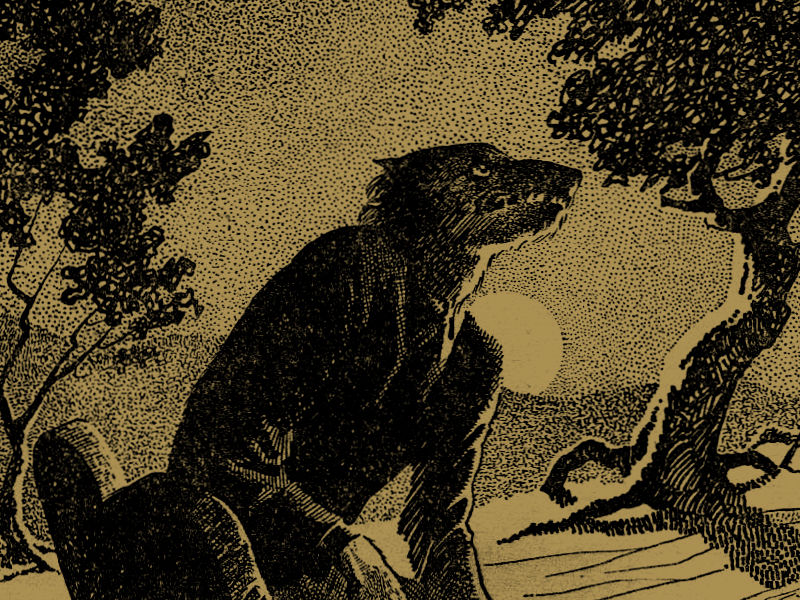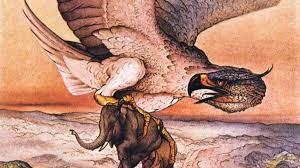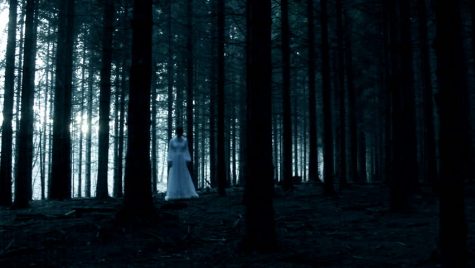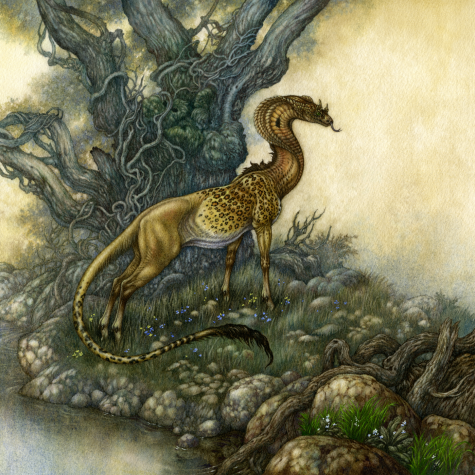Mythical Monsters: the Wulver
Vacuous YA drivel has irreparably tarnished the werewolf’s reputation, with so-called ‘writers’ reducing an ancient and much-feared legend to naught more than a pining, hairy teenager. Fortunately, regional subsects of the werewolf legends still remain intact; among these, there is certainly no variant more charming than the amicable Wulver, mild-mannered denizen of the Shetland islands.
Unlike most other species of werewolf, the Wulver was not a shapeshifter, but rather a creature with the body of a human and the head of a wolf. He was first spotted fishing on a rock that the low tide exposed below the sheer Shetland cliffs, where a young girl happened upon him on her way back from the market. Intrigued, she stood watching him until the rising tide forced him to abandon his spot, then dropped a curtsey as he approached. The Wulver was visibly startled at the unexpected company, but nonetheless bowed and exchanged pleasantries with her. Thus, an unlikely friendship was born—and soon spread to the rest of the village with the aid of the girl’s wagging tongue. This led to one of the rarest anomalies in supernatural lore, and not just the lack of a pitchfork-and-torch-wielding mob: as it turned out, the Wulver was quite a garrulous fellow, and many of his conversations with the townsfolk were recorded for posterity. What the Otherworldly fisherman must have thought mundane is near-unfathomable to simple humans in a magicless world: news from passing selkies on their way to Ireland, good-natured grumbles of faerie revels disturbing the peace in the wee hours of the morning, and warnings of kelpies prowling the shores were just as likely to be brought up as the weather.
There is a single incident, however, that was not recorded in detail. The fragment of parchment is signed by the local sheriff, and appears to have been penned in a hurry. Translated from Gaelic, it reads: “Have just seen M. Wulver, very distressed. Assured him that every man has a right to protect his own property, and in any case the damage done isn’t permanent—Thom should wake by morning.” The only other hint as to what might have transpired is found in Jessie Saxby’s Shetland Traditional Lore, published in 1932. In the passage, Saxby reaffirms the friendship between the townsfolk and the Wulver, repeating the locals’ assertion that “he didn’t molest folk if folk didn’t molest him.” Clearly, what must have been a dispute between neighbors or the prank of a mischievous child was treated as such, the Wulver’s supernatural status notwithstanding. All mentions of him indicate a kindly, civilized soul, contrary to most other breeds of werewolf; multiple sources claim that he even left fresh fish on the windowsills of impoverished families.
Certainly, the story of the Wulver bespeaks a friendship that transcends the boundary between the natural and supernatural. While the cave he once called home has disappeared as abruptly as the Wulver himself, the “Wulver Stone,” his favorite fishing spot, is still a matter of local pride. If you ask around, the Shetlanders will gladly regale you with tales of Scotland’s friendliest, furriest fisherman.













